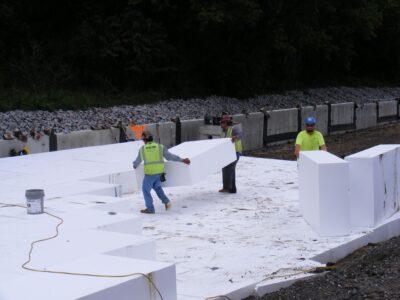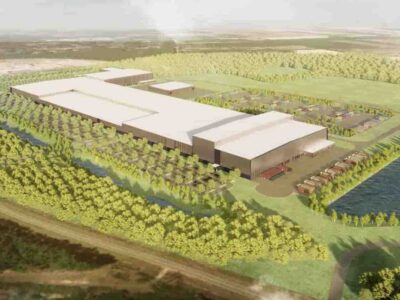Knowledge is power and schools across America are shaping our future one student at a time, and now — one building at a time, as they invest in high-performance, energy efficient facilities. In Colorado, Denver Public Schools has launched an Energy Performance Contract (EPC) project with McKinstry, a full-service design, construction, operation and maintenance firm boasting over five decades of experience creating spaces that cut waste and save money. In consultation with the Colorado Energy Office, the public-private partnership will solve maintenance issues, reduce utility bills and improve the learning environment for 27 schools in the Denver district, by making energy efficient improvements and capital upgrades across 3.8 million square feet of educational space. The main goal of the venture is to help create a positive learning environment supporting Denver Public School’s mission: ensuring “Every Child Succeeds.”
Executive director of facilities for Denver Public Schools, Trena Marsal, says: “Because this project is fully funded through guaranteed savings, we are able to address critical improvements in our schools that are long overdue for upgrade and would not be possible due to significant financial constraints. All told, this project will enhance the educational environment for more than 15,000 students and 500 staff.” In the mid-1990s, Colorado launched its Energy Performance Contract (EPC) program. Since then, 152 public jurisdictions–including 58 school districts–have partnered with energy companies like McKinstry to great success, saving almost $35 million in annual utility costs, 228 million kilowatt-hours of electricity, and over 507 million gallons of water.
McKinstry was chosen by Denver Public Schools and the Colorado Energy Office for their proven track record, serving 450 K-12 school districts throughout the U.S. with nearly 600 energy projects to date. McKinstry guarantees savings across all of their projects, from design to construction, operation to maintenance. The Denver Schools EPC includes the installation of rooftop solar arrays at 14 schools to generate electricity, fund additional improvements, and help meet the district’s sustainability goals in a financially viable way. McKinstry vice president of Energy & Technical Services for the Mountain Regions, Leslie Larocque, says: “We’re thrilled to expand our work with Denver Public Schools and once again serve as a trusted partner in modernizing their facilities to offer the best educational environment possible. This project will provide a healthier, more comfortable classroom learning environment for students, while also providing up to five megawatts of solar energy to reduce annual carbon dioxide emissions by almost 10,000 tons.”
After a Technical Energy Audit earlier this year, including a thorough evaluation of capital retrofits, utility efficiency measures, solar and renewable energy opportunities, McKinstry and Denver Public Schools settled on a plan expected to save nearly $1.5 million in annual utility, operations and maintenance costs. The kicker was that the deal also included an estimated $215,000 in utility rebates. Overall, the plan is right in line with other Colorado Energy Performance Contracts, according to DeLynne Southern, technical specialist with the Colorado Energy Office. “As of May 2020, a total of 221 projects have improved the performance and efficiency of public buildings, encompassing 90 million square feet and funding over $654 million of improvements across the State of Colorado,” stated Southern.
It just makes sense for Colorado, and the jobs are there to prove it. Driven by a clear commitment to sustainability by policy makers for both parties, the state is among the top ten in three clean energy sectors — coming in third in wind energy, ninth in bioenergy and sixth in overall renewable energy, according to Clean Jobs Colorado’s 2019 report. Barely missing the top ten for solar, Colorado currently sits in eleventh place, but the future looks bright for mountain sunshine. With nearly 60,000 clean energy jobs today, Colorado’s potential has been rising since 2018, when the state outpaced the overall national rate of 1.5% for employment growth across cleantech sectors with an impressive 4.8% climb. The majority of Colorado clean energy growth last year occurred in energy efficiency, up 7.2%, and with electric vehicles increasing a whopping 22.5%.
Growth in the state’s clean energy portfolio equals big growth for the economy, but the McKinstry and Denver Public Schools’ Energy Performance Contract is especially important since buildings account for around 40% of greenhouse gas emissions. As of 2015, there were nearly 100,000 public schools throughout the country, many of them operating in old buildings desperately in need of upgrades. As states continue to set clean energy goals for the near future, ensuring “Every Child Succeeds” in a positive and sustainable learning environment is increasingly becoming a priority every American can get behind.





